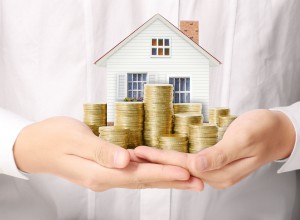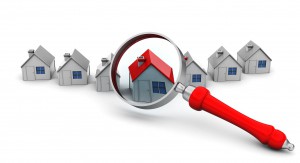In today’s fast changing property market one of the common questions I’m asked is “How much is that property really worth?”
Obviously that’s a good question – no property investor or home owner wants to overpay. 
For products that are plentiful, transacted often and largely the same as each other, determining market value is really easy.
But purchasing a home is typically not like buying tomatoes at the grocer.
Each property tends to have features that make it unique.
Even two houses, side by side in the same street could be valued differently because of their individual attributes.
To make things even trickier, property is typically not transacted frequently, so it may be hard to find a recent sale of a home similar to the one you’re interested in buying.
There is no “right price
Property is unlike most other things that you buy – there are no set prices.
Buyers and sellers must negotiate a price that is acceptable to both of them.
While the asking price is a guide of what the vendor would like to achieve or what the selling agent would like to get, for you the asking price is only a rough indication.
What about fair market value?
The definition of fair market value is usually the price that a willing purchaser is prepared to pay and a willing seller is prepared to accept, given that neither is forced to buy or sell under pressure.
In other words, if you bought a house today at fair market value you should be able to sell it again in a month’s time at the same price.
Don’t get emotional
A house is only worth what a buyer is prepared to pay for it, but value is in the eye of the beholder. 
It works both ways. Some buyers will fall in love with a home and be prepared to pay more for it than you would expect.
Similarly many sellers have an unrealistic view of what their home is worth.
They tend to remember what they paid for it and how much they spent on improving it.
They may have over-capitalised with expensive renovations or they may just need a higher price so they can buy a better home.
Yet sometimes neighbours say they got more than they actually did and sometimes agents mislead sellers as to what price can be achieved.
Others value their homes according to what they heard neighbours got for their properties.
In reality, none of this really matters because at the end of the day it’s buyers who ultimately determine market value.
So how do I determine the price? 
To make sure you don’t overpay – inspect as many comparable homes for sale and see what they actually sell for rather than what the asking price is.
While there are a number of providers that offer on line reports to estimate a property’s value, in general these are inaccurate and can under or over estimate the property’s value by 15%.
For example, these generic reports don’t know if the house has recently been renovated or if the owner has installed a split system air conditioner.
Similarly the report doesn’t know if the value of the property should be downgraded because of termites or a bathroom with water problems from a leaking shower.
My recommendation:
Employ a proficient buyers’ agent to help you buy your next home or investment.
Sure, being a buyers’ agent makes me biased, but I know the team at Metropole has an understanding of their locals markets in Melbourne, Sydney and Brisbane.
And we have the perspective gained over years in the property markets to understand what factors makes some properties a great investment.

No comments:
Post a Comment